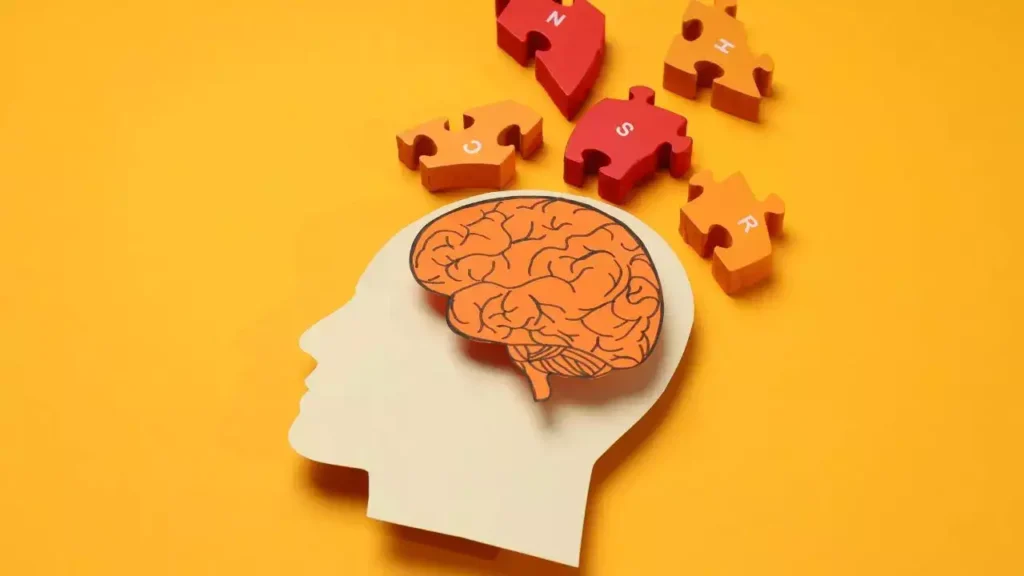In the ever-evolving field of brain health, understanding and implementing Enhance Brain Healt strategies to enhance cognitive function and mitigate memory loss is crucial. As our understanding deepens, it’s become evident that engaging in mentally stimulating activities such as puzzles, learning new skills, and maintaining an active social life can play a significant role in preserving cognitive abilities.
This blog will delve into five proven strategies that not only promise to boost brain health but also aim to reduce the risk of cognitive decline. Join us as we explore these impactful approaches and discover how you can actively contribute to sustaining your brain health and vitality.
-
Regular Physical Exercise
Engaging in regular physical exercise is one of the most effective strategies for enhancing brain health and mitigating memory loss. Exercise increases blood flow to the brain, promoting the growth of new blood vessels and the survival of new brain cells. Aerobic exercises, such as walking, swimming, and cycling, are particularly beneficial. They have been shown to increase the size of the hippocampus, the part of the brain associated with memory and learning. This enhancement can lead to improved cognitive function and a slowed progression of age-related memory loss.
Moreover, exercise stimulates the production of chemicals that protect brain cells and support the growth of new nerve cells. Beyond physical benefits, regular exercise also helps reduce stress and anxiety, which can negatively impact cognitive function. By incorporating consistent exercise into your routine, you not only improve your physical health but significantly contribute to brain health, helping to preserve memory and cognitive abilities as you age.
-
Balanced Diet and Nutrition
A balanced diet rich in antioxidants, good fats, vitamins, and minerals provides nourishment to the brain. Eating plenty of fruits, vegetables, nuts, and fish is associated with reduced risks of cognitive decline. The Mediterranean diet, for example, emphasizes plant-based foods and healthy fats, and has been linked with better brain health and lower rates of Alzheimer’s disease. Omega-3 fatty acids found in fish are particularly crucial as they contribute to the structural integrity of brain cells and have anti-inflammatory properties.
Additionally, maintaining a balanced diet can help control body weight and reduce the risk of diseases like obesity and diabetes, which are associated with cognitive decline. It’s important to limit the intake of sugar and processed foods, which can contribute to inflammation and oxidative stress that harm brain cells. By focusing on balanced nutrition, you support cognitive function and promote overall health, offering protection against memory loss. You can also opt to join clinical research studies such as memory loss clinical research study Lilly.
-
Mental Stimulation
Keeping the brain engaged through mental stimulation is essential for maintaining cognitive health. Activities such as reading, writing, playing musical instruments, or engaging in puzzles and games challenge the brain and promote neural connections. Ongoing mental stimulation encourages the brain to adapt and reorganize itself, enhancing cognitive reserve and resilience against memory loss.
Partaking in lifelong learning, whether through formal education or self-directed learning, can significantly impact brain health. Developing new skills or learning a new language can be particularly advantageous, as it requires the brain to establish new pathways. Overall, mental stimulation bolsters cognitive function and reduces the risk of cognitive decline, contributing to a healthier and more active brain.
-
Quality Sleep
Quality sleep is vital for brain health and cognitive function. During sleep, the brain consolidates memories, forming stronger connections that are essential for learning and memory. Inadequate sleep impairs concentration, working memory, and the ability to process new information. Chronic sleep deprivation has been linked to an increased risk of Alzheimer’s disease and other forms of dementia.
Establishing a regular sleep routine and creating a conducive sleep environment can significantly enhance sleep quality. Practices such as avoiding screens before bedtime, reducing caffeine intake, and ensuring a comfortable sleep setting are beneficial. Prioritizing sleep as a crucial component of a healthy lifestyle supports cognitive health and mitigates memory loss over time.
-
Social Engagement
Staying socially active is another important strategy for brain health. Interacting with others keeps the brain engaged and can help improve cognitive functions such as memory and reasoning. Social activities stimulate the brain, fostering emotional and intellectual connections that promote mental resilience. Engagement in community activities, volunteering, or maintaining close relationships can provide essential mental stimulation and emotional support.
Research shows that social isolation can lead to increased risks of memory loss and cognitive decline. Thus, maintaining a strong social network can protect against these risks and contribute to a healthier brain. Participating in social activities provides opportunities for learning, sharing experiences, and emotional bonding, all of which are vital for sustaining brain health throughout life.
By integrating these strategies into daily life, individuals can actively participate in enhancing their brain health and mitigating the risks associated with memory loss. As highlighted by the Lilly memory loss clinical research study, early intervention and proactive measures are key to preserving cognitive function and ensuring a high quality of life.
Final Thoughts
As we close this discussion on enhancing brain health and mitigating memory loss, it’s clear that a multi-faceted approach, integrating physical, mental, dietary, and social elements, is most effective. By proactively engaging in regular physical exercise, maintaining a balanced diet rich in essential nutrients, providing consistent mental stimulation, prioritizing quality sleep, and fostering social connections, individuals can significantly bolster their cognitive health.
Incorporating these strategies into daily life requires dedication and consistency but offers the remarkable benefit of sustaining brain vitality and function. As research continues to evolve, it becomes increasingly evident that these lifestyle choices not only enhance current cognitive abilities but also serve as protective measures against age-related cognitive decline.
Remember, it’s never too early or too late to start taking care of your brain. By adopting these habits today, you set the foundation for a healthier, more resilient brain in the years to come. Empower yourself with knowledge and take action to preserve your cognitive health for a brighter future.
